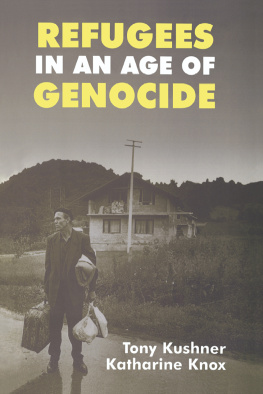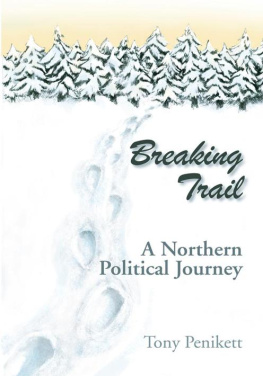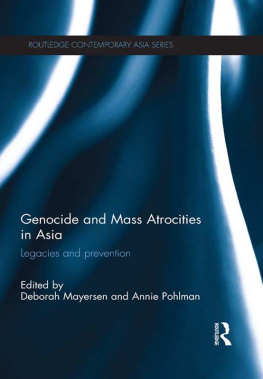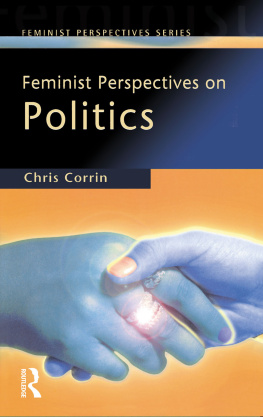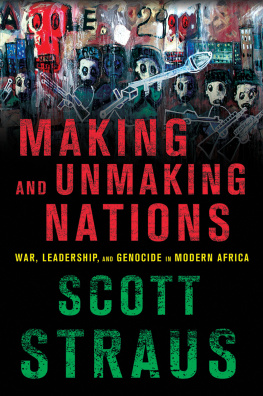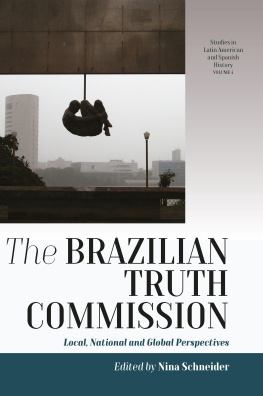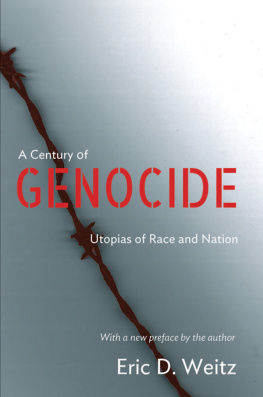Tony Kushner - Refugees in an Age of Genocide: Global, National and Local Perspectives During the Twentieth Century
Here you can read online Tony Kushner - Refugees in an Age of Genocide: Global, National and Local Perspectives During the Twentieth Century full text of the book (entire story) in english for free. Download pdf and epub, get meaning, cover and reviews about this ebook. year: 1999, publisher: Routledge, genre: Politics. Description of the work, (preface) as well as reviews are available. Best literature library LitArk.com created for fans of good reading and offers a wide selection of genres:
Romance novel
Science fiction
Adventure
Detective
Science
History
Home and family
Prose
Art
Politics
Computer
Non-fiction
Religion
Business
Children
Humor
Choose a favorite category and find really read worthwhile books. Enjoy immersion in the world of imagination, feel the emotions of the characters or learn something new for yourself, make an fascinating discovery.
- Book:Refugees in an Age of Genocide: Global, National and Local Perspectives During the Twentieth Century
- Author:
- Publisher:Routledge
- Genre:
- Year:1999
- Rating:5 / 5
- Favourites:Add to favourites
- Your mark:
- 100
- 1
- 2
- 3
- 4
- 5
Refugees in an Age of Genocide: Global, National and Local Perspectives During the Twentieth Century: summary, description and annotation
We offer to read an annotation, description, summary or preface (depends on what the author of the book "Refugees in an Age of Genocide: Global, National and Local Perspectives During the Twentieth Century" wrote himself). If you haven't found the necessary information about the book — write in the comments, we will try to find it.
Tony Kushner: author's other books
Who wrote Refugees in an Age of Genocide: Global, National and Local Perspectives During the Twentieth Century? Find out the surname, the name of the author of the book and a list of all author's works by series.
Refugees in an Age of Genocide: Global, National and Local Perspectives During the Twentieth Century — read online for free the complete book (whole text) full work
Below is the text of the book, divided by pages. System saving the place of the last page read, allows you to conveniently read the book "Refugees in an Age of Genocide: Global, National and Local Perspectives During the Twentieth Century" online for free, without having to search again every time where you left off. Put a bookmark, and you can go to the page where you finished reading at any time.
Font size:
Interval:
Bookmark:
IN AN AGE OF
GENOCIDE
during the Twentieth Century
and
KATHARINE KNOX

LONDON PORTLAND, OR
FRANK CASS
2 Park Square, Milton Park,
Abingdon, Oxon, OX14 4RN
FRANK CASS
270 Madison Ave,
New York NY 10016
Reprinted in 2001
1. Refugees 2. Refugees History 20th century
I. Title II. Knox, Katharine
325.21
ISBN 0 7146 4341 6 (paper)
p. cm.
1. Refugees History 20th century. 2. Political refugees History 20th century. 3. Persecution History 20th century. 4. Genocide History 20th century. I. Knox, Katharine,
1972 II. Title.
CIP
Font size:
Interval:
Bookmark:
Similar books «Refugees in an Age of Genocide: Global, National and Local Perspectives During the Twentieth Century»
Look at similar books to Refugees in an Age of Genocide: Global, National and Local Perspectives During the Twentieth Century. We have selected literature similar in name and meaning in the hope of providing readers with more options to find new, interesting, not yet read works.
Discussion, reviews of the book Refugees in an Age of Genocide: Global, National and Local Perspectives During the Twentieth Century and just readers' own opinions. Leave your comments, write what you think about the work, its meaning or the main characters. Specify what exactly you liked and what you didn't like, and why you think so.

